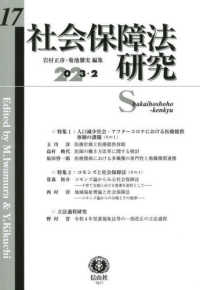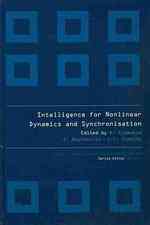- ホーム
- > 洋書
- > 英文書
- > Cinema / Film
Full Description
Hollywood Diplomacy contends that, rather than simply reflect the West's cultural fantasies of an imagined "Orient," images of Chinese, Japanese, and Korean ethnicities have long been contested sites where the commercial interests of Hollywood studios and the political mandates of U.S. foreign policy collide, compete against one another, and often become compromised in the process. While tracing both Hollywood's internal foreign relations protocols—from the "Open Door" policy of the silent era to the "National Feelings" provision of the Production Code—and external regulatory interventions by the Chinese government, the U.S. State Department, the Office of War Information, and the Department of Defense, Hye Seung Chung reevaluates such American classics as Shanghai Express and The Great Dictator and applies historical insights to the controversies surrounding contemporary productions including Die Another Day and The Interview. This richly detailed book redefines the concept of "creative freedom" in the context of commerce: shifting focus away from the artistic entitlement to offend foreign audiences toward the opportunity to build new, better relationships with partners around the world through diplomatic representations of race, ethnicity, and nationality.
Contents
Introduction
Part I: Diplomatic Representations in Classical Hollywood
1. Censorship as Cultural Resistance: The Chinese Government's "Uplift" of National Images in 1930s Hollywood
2. Justified Patricide and (Im)Properly Directed Hatred: Regulating the Representations of Chinese and Japanese in Doolittle Raid Films
3. Beyond Propaganda Model: The Pentagon as a Technical Advisor for Brainwashing Films of the Cold War Era
Part II: The War on Terror, Contemporary Hollywood, and Its Global Discontents
4. From Die Another Day to "Another Day": The Anti-007 Movement, Pan-Asian Nationalism, and Protests as Censorship
5. The Interview as a Twenty-First-Century Great Dictator? Rethinking Film Regulation and Foreign Relations through the Sony Crisis
Conclusion: Chinese Censors Return to Hollywood
Appendix
Acknowledgments
Notes
Index






